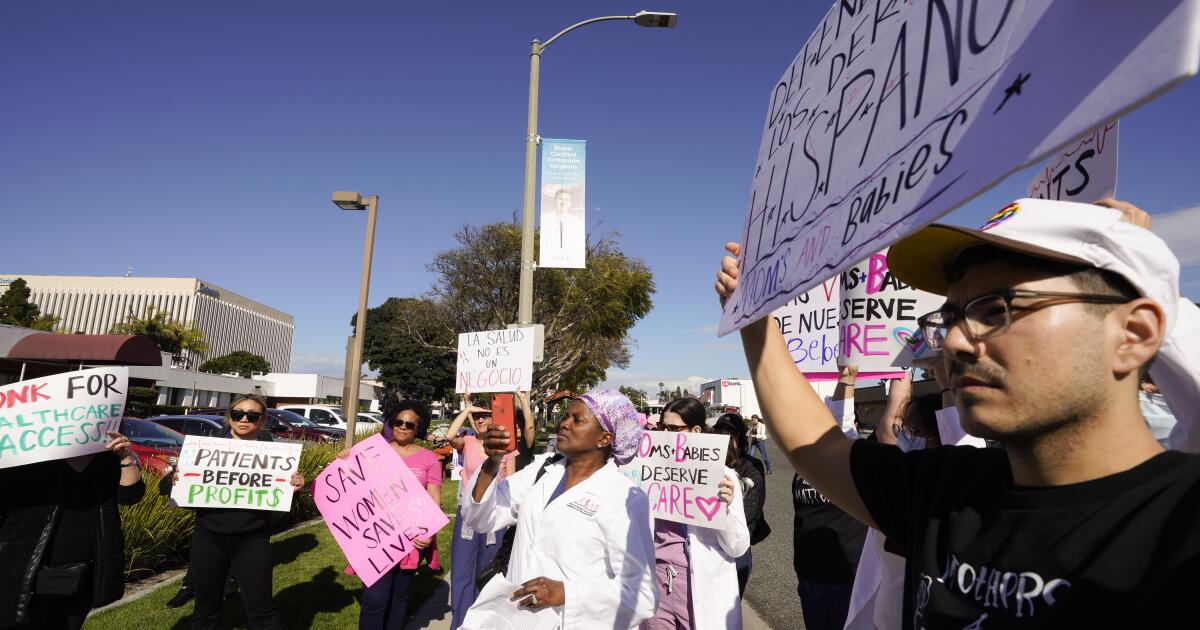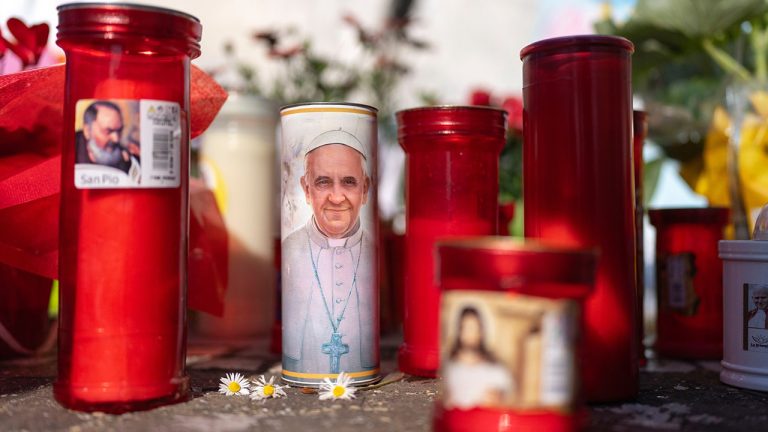

Calls for the state to investigate the impending closure of maternity services at Scripps Mercy Hospital Chula Vista will go unfulfilled.
After saying last week that it is not obligated to undertake a community impact investigation as urged by employees and a public petition with more than 1,700 signatures, the California Department of Public Health said in an email this week that no such move is forthcoming from the agency that regulates medical centers statewide.
“Labor and delivery services are an optional service, and while we understand the concerns that have been raised, CDPH does not have the legal authority to mandate any hospital keep those services active,” the CDPH statement said. “CDPH will monitor this facility during and throughout the transition to ensure proper care is provided and investigate any instance where there is potential noncompliance with state and federal regulations.”
Scripps notified its employees two weeks ago of its intentions to “consolidate” the maternity operations of its two Mercy hospitals, shifting services to Scripps Mercy Hospital San Diego in Hillcrest to make room for an additional inpatient unit at Mercy Chula Vista. Subsequently, employees and physicians have clashed over whether Scripps has accurately portrayed the occupancy rates of maternity services in Chula Vista and whether the health care giant has underestimated its ability to handle the emergency deliveries that will continue to arrive at Mercy Chula Vista’s ER after its labor and delivery unit closes.
Meanwhile, community pressure has continued to mount.
Unhappy doctors and nurses marched from the hospital to Chula Vista City Hall on Tuesday, many waiting for three hours to voice their concerns about the situation during open comments. Dire predictions of mothers suffering by having to travel to other hospitals in rush-hour traffic, or on slow public transportation, drew a reaction from Chula Vista Mayor John McCann who asked city staff to “communicate with the state and see what options we have.”
“We can work with the Scripps doctors here to see if we can put something on the dais or docket that we could potentially support keeping the labor and delivery department at Scripps Chula Vista,” McCann said, drawing consensus from council members in attendance.
It’s clear that people with deep connections are watching. Former county Supervisor Dianne Jacob, for instance, found herself forwarding a recent health care industry article that found Scripps’ first-quarter net operating income recovered in 2024, coming in at $73 million compared to $5.7 million for the same period in 2023.
“It appears to be all about the money at the expense of patients, employees and physicians,” Jacob said in an email to The San Diego Union-Tribune.
Scripps is not alone in its maternity consolidation decision. Many hospitals have taken similar actions in recent years, leaving some rural communities with no options for deliveries without driving many miles outside their communities. Lawmakers have begun to push back. In January, Dr. Akilah Weber, who represents San Diego County’s 79th Assembly District, introduced Assembly Bill 1895, a bill that would require CDPH and the state Department of Health Care Access to “conduct a community impact assessment regarding the closure,” within six months of notification and to provide the results to the public.
Scripps has said that the move is simply about handling the overflow of Mercy Chula Vista’s very-busy emergency department while also noting that its maternity unit in Hillcrest has run at less than its full capacity, leaving room for an influx of South Bay patients. Plans to stabilize and transfer obstetric patients who arrive at Chula Vista in emergency situations, Scripps officials have said, will be designed to protect patient safety.
Chris Van Gorder, Scripps’ chief executive officer, reportedly presented the consolidation plan to a joint meeting of the organization’s medical chiefs of staff and vice chiefs of staff, positions that are elected by doctors not appointed by management.
“They received unanimous support for the consolidation as the chiefs understand the ED boarding issue, including the fact that it (overcrowding) will be made much more difficult with SB43 and AB40,” said Janice Collins, Scripps’ director of public relations, in an email.
SB43 is a new state law that redefines the meaning of gravely disabled, potentially causing an increase in the number of unhoused residents picked up and brought to the nearest emergency department for evaluation. The county delayed implementation of the law for one year, allowing more time for hospitals, law enforcement and mental health services providers to plan for increased demand for already taxed services. AB40, signed into law in 2023, requires hospitals to offload ambulances more quickly, in 30 minutes or less 90 percent of the time. Failure to meet the standard is “punishable as a misdemeanor.”
While Scripps has assured the community that it will continue to offer maternity services in South Bay and the vast bulk of pregnancy-related health care takes place in the offices of the obstetricians and gynecologists, some who spoke to the Chula Vista City Council on Tuesday said they fear the loss will go deeper.
Dr. Susanna Chou, a family medicine practitioner with an office across the street from Mercy Chula Vista, said she fears how the consolidation will affect Scripps’ family medicine residency program. After graduating from Harvard Medical School in 1999, Chou said she was in the program’s inaugural class, graduating in 2002.
The physician said the chance to work with underserved patients was what drew her to Chula Vista and is what caused her to stay for 25 years.
“If we want to attract and retain young families to have a vibrant growing city, we need to invest in and not cut health care for mothers and babies,” Chou said.
Scripps said it has no plans of ending the residency program which, including the 2024 class, will have a total of 169 graduates — roughly nine each year. Aspects of the program such as prenatal care which occur in the months before and after delivery will remain in the community.
“We are actively and collaboratively working with our Family Practice Residency and OB physician leadership to successfully transition the Family Practice OB delivery rotation to the San Diego campus,” Scripps said. “The residents will continue to provide care to patients through our continuing partnerships with community clinics in the South Bay community throughout the continuum of maternity care.”
After reading Scripps’ statement on the future of the residency program, Chou was skeptical. She said the program’s partnership between San Ysidro Health Center and Mercy Chula Vista combined with the close proximity to the U.S-Mexico border, has the power to draw highly-qualified candidates from prestigious medical schools nationwide. And many, her self included, stick around after their residency is complete.
“This planned consolidation will change the quality of candidates who choose to apply to the residency program,” Chou said. “Prospective residents will not want to come to a program where there is no in-house labor and delivery, and this unique and essential pipeline for training physicians for vulnerable communities will be lost.”
She and other medical providers also pointed to the past to predict how the consolidation operation will turn out. In 1994, they said, a similar transfer to Mercy in Hillcrest fizzled.
“At-risk patients served by the hospital will not present to a more-distant hospital to which they are assigned due to the burden of unfamiliarity, time, difficulty and cost of travel and lack of cultural competency in the hospital staff,” Chou said. “Having traveled by trolley and bus, patients simply continued to show up at the emergency room.
“The same phenomenon occurred when San Ysidro Health Center briefly stopped delivering at Scripps Chula Vista; their patients just came to Scripps without having their doctor available.”
Closure of the Mercy Chula Vista maternity unit is expected to occur in late June.







